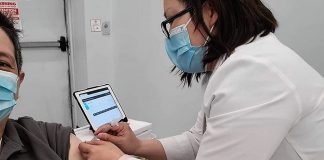
To reduce ambulance travel and visits to emergency rooms in hospitals located in the region, the CISSS des Laurentides has launched a pilot project creating an Integrated clinical coordination unit for our pre-hospital emergency services (UCCISPU).
This project involves transferring 911 calls to the UCCISPU for secondary triage. The team is made up of nurses, emergency medical technicians (paramedics), as well as a doctor, and is available at all times.
Take a look at the
featured Local Savings
at the bottom of this page!
This type of (telephone) triage is done to more efficiently meet the needs of patients, in particular by referring them to a more appropriate resource for their situation (appointment with a family physician, medical clinic, pharmacist, self-care advice, etc.) than a hospital emergency room. Since its creation in April, 2020, the unit has made it possible to cancel 2274 ambulance calls, i.e. 30% of low-priority or non-urgent deployments. This means as many patients who have been better advised to meet their needs and directed to other available services.
“Thanks to its vision for integrating and supporting all the members of our pre-hospital emergency services as well as our partners and patients on a daily basis, this new unit enables us to make optimal use of our available resources. I am extremely proud of the results, which prove how much we can innovate by leveraging the expertise of all our colleagues, always with the aim of providing the best possible care and services to the public in our region”, said the President and Executive Director of the CISSS des Laurentides, Rosemonde Landry.
In fact, the success of the UCCISPU is reverberating beyond the Laurentian region. Since June 22 of this year, the unit has begun low-priority secondary triage for the northern portion of the Lanaudière region, enabling the cancellation of 41% of non-urgent deployments.
The success of such a project is all the more important as hospital emergency rooms in the region have seen a high volume of patients in the past several weeks. The creation of this unit is contributing to direct the right patients to the right place to receive the right service















